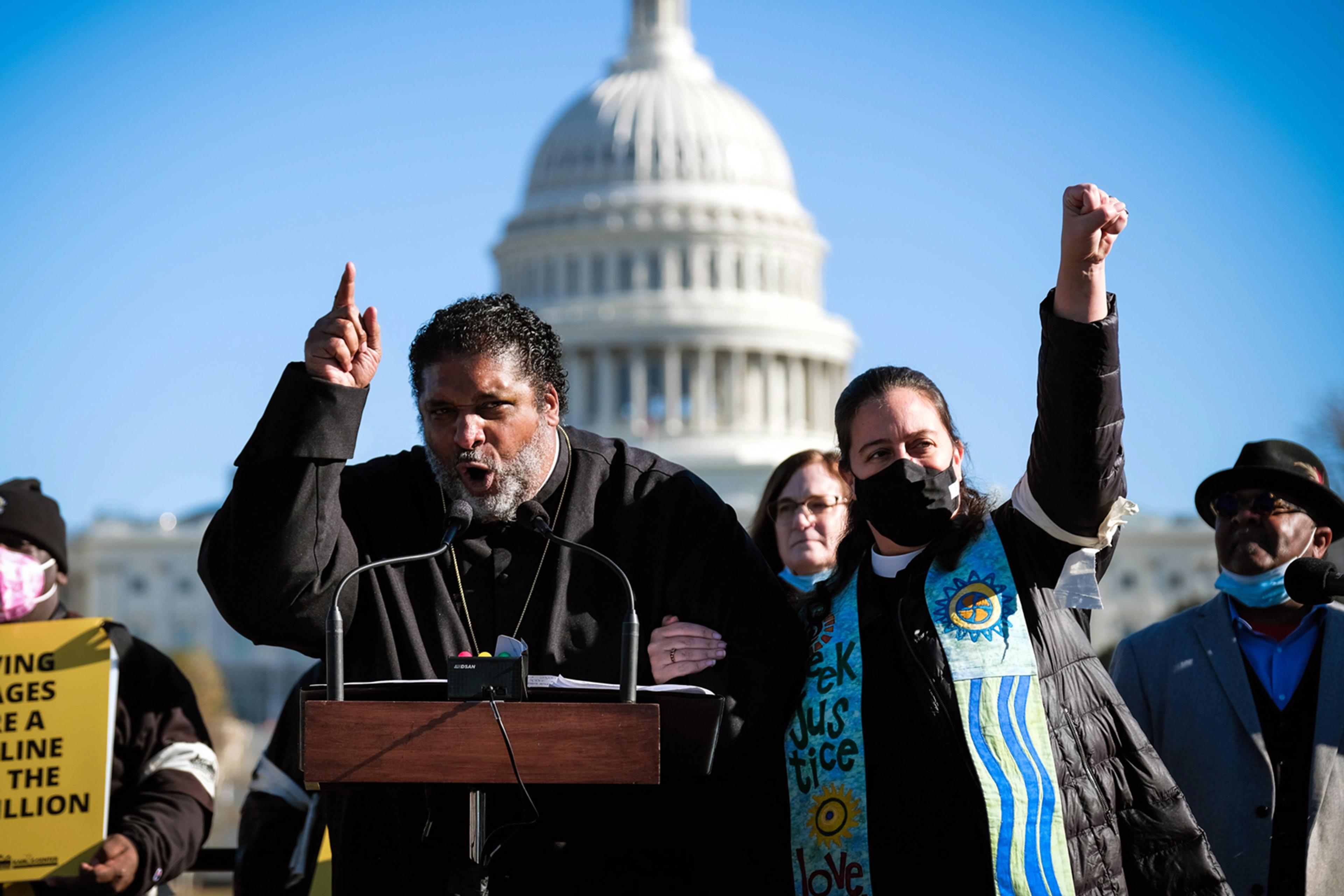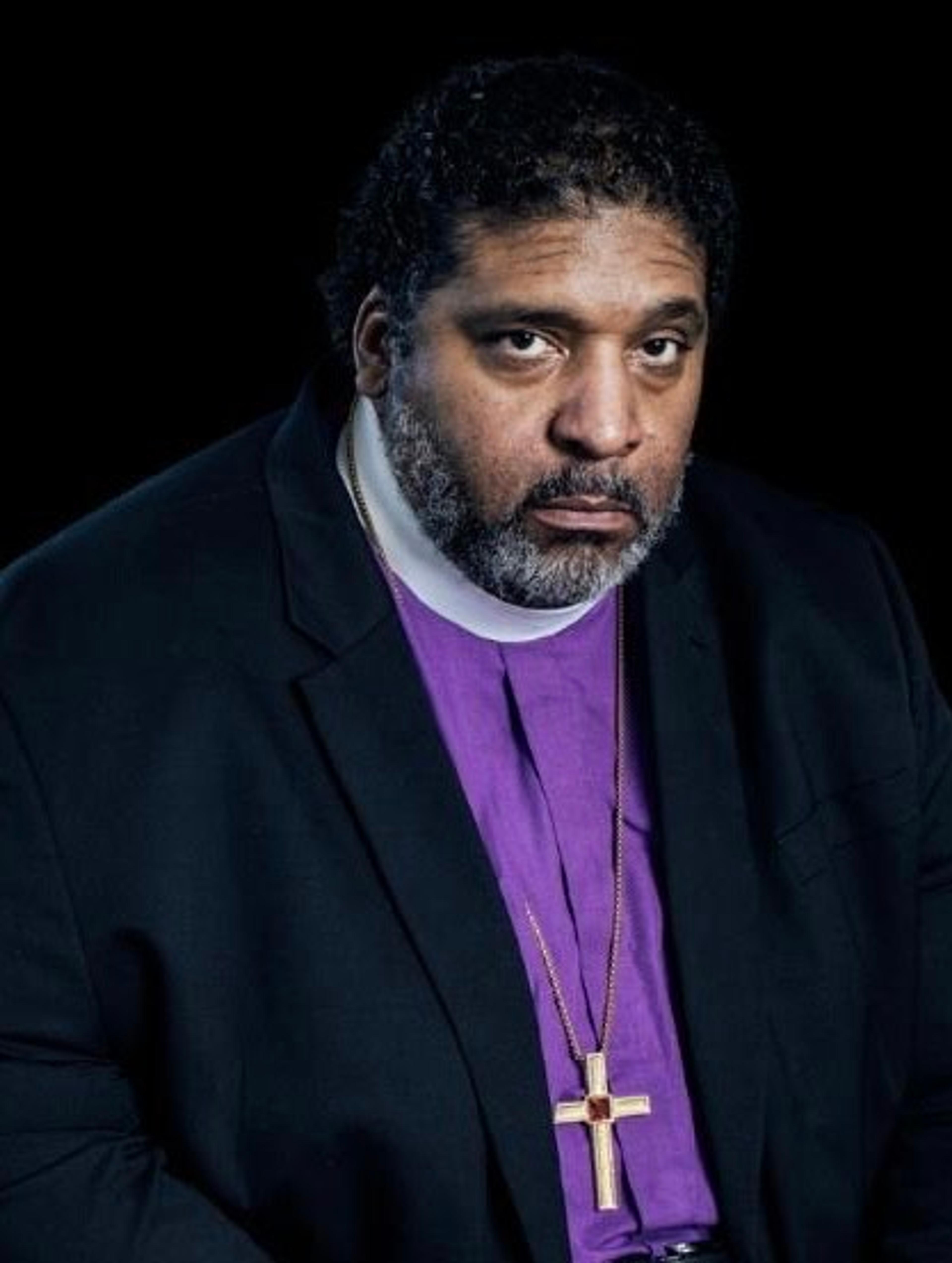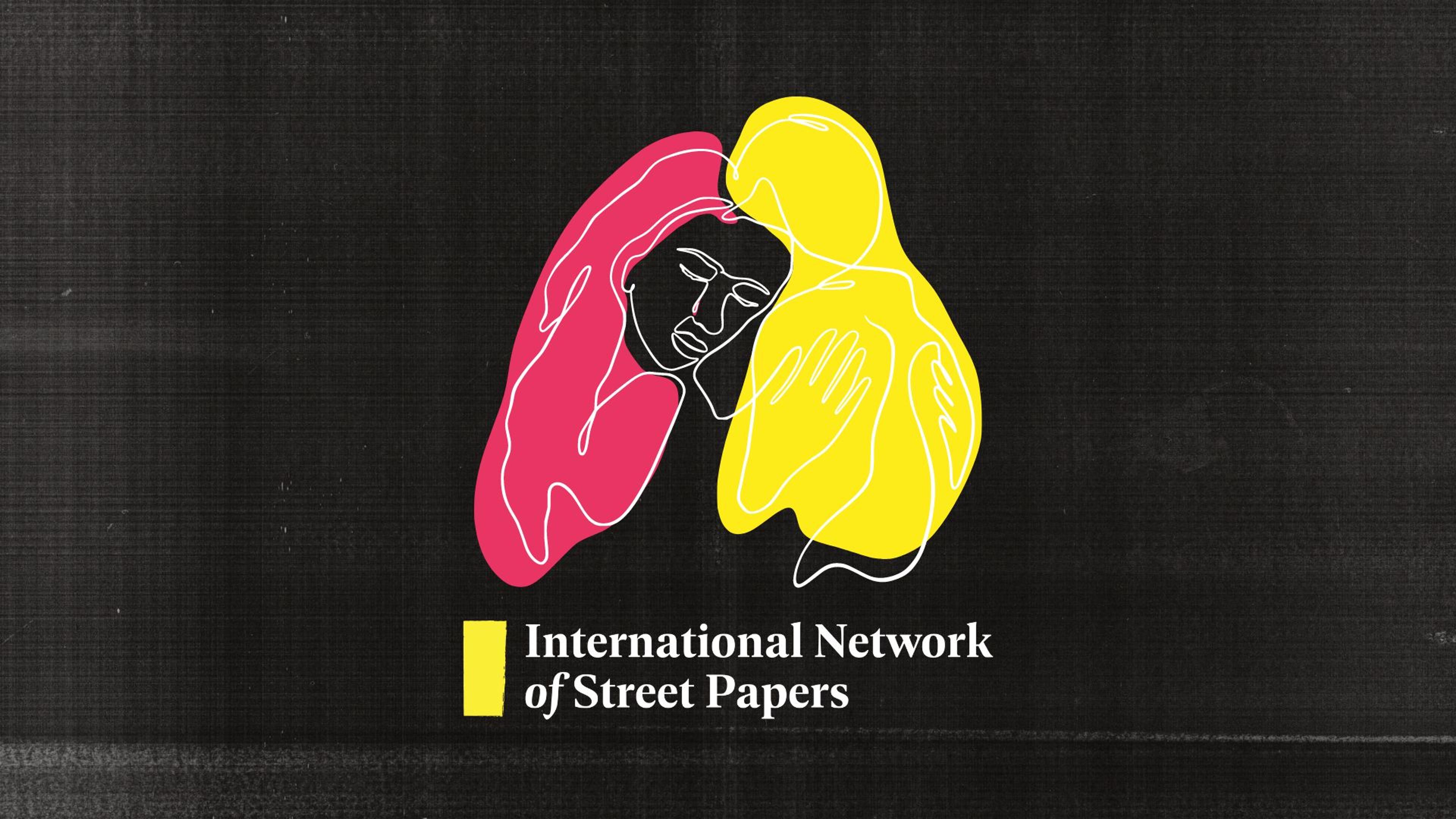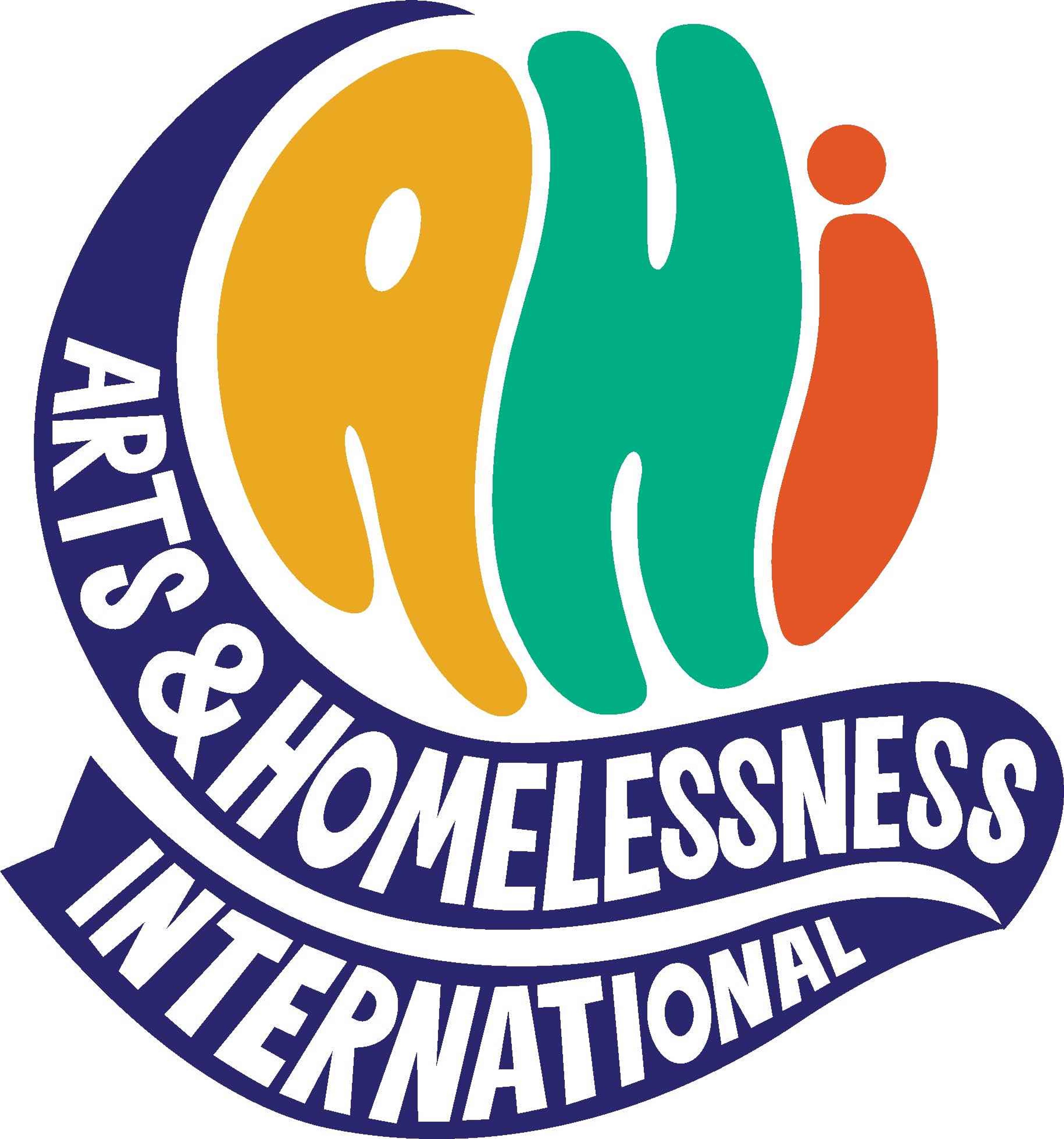Reverend Barber and the revolutionary power of poor people

The co-chairs of the Poor People's Campaign: A National Call for Moral Revival, Bishop William J. Barber II and Rev. Dr. Liz Theoharis. The photo was taken Dec. 13, 2021 in Washington, DC, at a Moral March on Washington. Credit: Steve Pavey/Poor People's Campaign/Repairers of the Breach/Kairos Center.
By Ann-Derrick Gaillot
- News
A Poor People’s March is descending on Washington, D.C. this summer. It has the potential to ignite a new progressive movement in the United States. INSP spoke to one of that movement’s leaders, pastor and activist the Reverend Dr. William Barber.
At the time of his assassination in 1968, Martin Luther King, Jr. was in the process of organizing a demonstration in Washington, D.C. uniting thousands of struggling Americans, of all races and ethnicities, in the fight for economic justice. Called the Poor People’s Campaign and March on Washington, it threatened to upend the interests of the United States’s wealthy, ruling class to further the causes of expanding access to education and jobs and ensuring all Americans get a living wage. And when the campaign began in May, just weeks after King’s death, thousands of people showed up at the Nation’s Capital, set up a settlement on the Mall, and protested, demonstrated, and lobbied until government officials forced them out on 24 June. The Campaign had some wins, but was ultimately derailed by King’s assassination, as well as that of Senator Robert F. Kennedy not long after.
This summer, a new Poor People’s Campaign is planning to realize King’s vision of broad-based solidarity with a massive demonstration of its own called the Mass Poor People’s & Low-Wage Workers’ Assembly & Moral March on Washington. Like its predecessor, it represents a threat to the status quo and hope for the millions of Americans living in poverty today. Scheduled to take place on 18 June in Washington, D.C., after a series of mobilization events across the country, the March is being spearheaded by the Poor People’s Campaign: A National Call for Moral Revival (PPC:NCMR). Organizers are set to unite and activate a new generation of struggling and suffering Americans. The only thing they need now is for people to show up.
“The truth of the matter is the poor, low wealth vote is a vote that’s feared,” says the Reverend Dr. William Barber, II, a pastor, activist, and one of the leaders of PPC:NCMR. “It’s just as true today as it was [in 1965] when Dr. King…said that the segregated society was a strategy designed to keep the masses of poor and low wealth from being able to form powerful voting blocks that, if engaged, would threaten the Southern aristocracy and would fundamentally reshape the economic architecture of the country.” Noting how voting rights, employment, housing, and climate activists often remain in their own organizing silos, he hopes that PPC:NCMR, which he co-leads with Reverend Liz Theoharis, and the upcoming March can bring them together in a powerful consolidation of progressive power.
Born in Indianapolis two days after the 1963 March on Washington, Barber grew up in North Carolina, where he watched his parents work on desegregation and advocacy for poor and low wealth people. For a time, his father, pastor and scholar William J. Barber, Sr, worked with a local Community Action Program to assist people in low-wealth, susceptible neighborhoods in winterizing their homes. It helped shape Barber’s worldview early on. “I saw him recognize that you cannot say that you care about lifting the lot of poor, low wealth people in this country if you do not fight to ensure that they have full protected and expanding voting rights, that those that are ill and sick and disabled are guaranteed income, and that those that work make a living wage—a living wage—and that they have access to affordable, safe housing as well as healthcare.”
As an adult, Barber traveled the United States continuing to be in community with people living in poverty and experiencing homelessness. On his visits to encampments, he listened as people told him about being neglected, demonized, and cast aside. There was the homeless camp in the woods of Hickory, North Carolina, nestled not far from a church advertising anti-LGBT hatred on its billboard. “I remember tearing up really bad when [the people there] said, ‘There are plenty of vacant homes in this city. They’ll never open them up to us,’” he says. Residents of the camp warned him he probably would not be able to come for a return visit. By then, the police would have run them out.

Reverend Dr. William Barber IIFolks can drive by things without seeing them. And therefore, if they never see it, then they don’t have to address it. It doesn’t singe their consciousness.
Later, Barber visited an encampment in Aberdeen, Washington, where a thousand people, mostly white and Indigenous millennials, were living in despair. When he asked a man there, a veteran of the US military, why he flew an American flag over the car and tent he slept in, the man answered that he wanted people to know “what happens too often underneath our flag.” During the last election, Barber journeyed to an underpass in Milwaukee as people living there prepared to be swept before the Democratic National Convention. As he had been before, he was struck by the lengths American culture and society goes to hide its most devastating aspects. “Folks can drive by things without seeing them. And therefore, if they never see it, then they don’t have to address it. It doesn’t singe their consciousness,” he says, adding that the upcoming March will do just that. “There’s gonna be a whole segment of the program that day on homelessness and the voices of people who are homeless. Not somebody speaking on behalf, but them speaking on behalf of themselves.”
Since Barber and Theoharis teamed up to form PPC:NCMR four years ago, one of the Campaign’s focuses has been on sourcing hard data to reveal the truth on poverty and justice in the United States. In 2018, PPC:NCMR — along with other grassroots organizations Barber and Theoharis lead, the Kairos Center and Repairers of the Breach, partnered with the Institute of Policy Studies to produce an empirical study of poverty in the US called The Souls of Poor Folk. Among its many stark findings was that 140 million Americans are poor or live on low incomes; meanwhile, half of all Americans could be plunged into economic ruin by a $400 emergency.
In 2020, PPC:NCMR, Kairos, and Repairers of the Breach worked with Columbia University microeconomist Robert Paul Hartley to produce Unleashing the Power of Poor and Low-Income Americans: Changing the Political Landscape. The report revealed, among other things, that if low-income members of the electorate voted at the same rate as their higher-income counterparts in 2016, they could have flipped ten states from red to blue, and five from blue to red. And last year, the PPC:NCMR produced a study called Waking the Sleeping Giant: Poor and Low Income Voters in the 2020 Elections. It shed even more light on the deciding power the poor and low-income electorate could have, if only campaigns and candidates engaged them and voting rights weren’t under constant attack.
Altogether, PPC:NCMR has amassed a compendium of data that undergirds its Third Reconstruction agenda, which includes a 14-point plan for addressing “systemic racism, poverty, ecological devastation and the denial of health care, militarism and the war economy and the false moral narrative of religious nationalism.” The March and agenda together have the potential to spark the kind of mass movement King and his spiritual descendents like Barber and Theoharis have long envisioned and worked for. “This day, 18 June, two days before the summer solstice, is going to put a moral light on poverty, racism, ecological devastation, denial of healthcare, issues of housing, the war economy, and the false moral narrative of religious nationalism and white supremacy, like we have not seen,” says Barber, who wants to engage international organizations to set up satellite solidarity events across the world. “It will be the largest gathering of poor, low-wealth people, religious allies, and other advocates coming together to put a face on poverty, a face on homelessness and the lack of housing, a face on the denial of a living wage, not just a statistic. But not only to put a face on it and to curse the darkness; we are also coming with the Third Reconstruction agenda.”
Since January, PPC:NCMR has been building momentum for the March with its Mobilization Tour. After several stops across the country, including a 2 April Moral March in Raleigh, North Carolina, it will convene in Memphis, Tennessee, where King was assassinated in 1968. About a month later, the Mass Poor People’s & Low-Wage Workers’ Assembly & Moral March on Washington and to the Polls will finally be realized on 18 June. The key to supporting the movement and march? Being present. “We are saying to people—wherever you are, whether you’re poor, low-wealth, or whether you’re a religious leader, or whether you’re an advocate—we need folks to make their way and mobilize as many people as they can to DC,” says Barber, who hopes the March will serve as a collective declaration that enough suffering is enough. “We won’t be silent anymore. It’s not a one-day event. It’s a movement coming together to reshape the moral narrative, to build power, and not to beg the nation, but to offer the nation a way of hope and redemption.”
Courtesy of INSP North America


